We all know that most dogs will eat anything, but that doesn’t mean we should let them. If you’ve been sorting through your leftovers and wondering what you should and shouldn’t give to your canine companion, we’re here to help. This list reveals 20 foods that are safe for you to share with your dog.
Peanut Butter
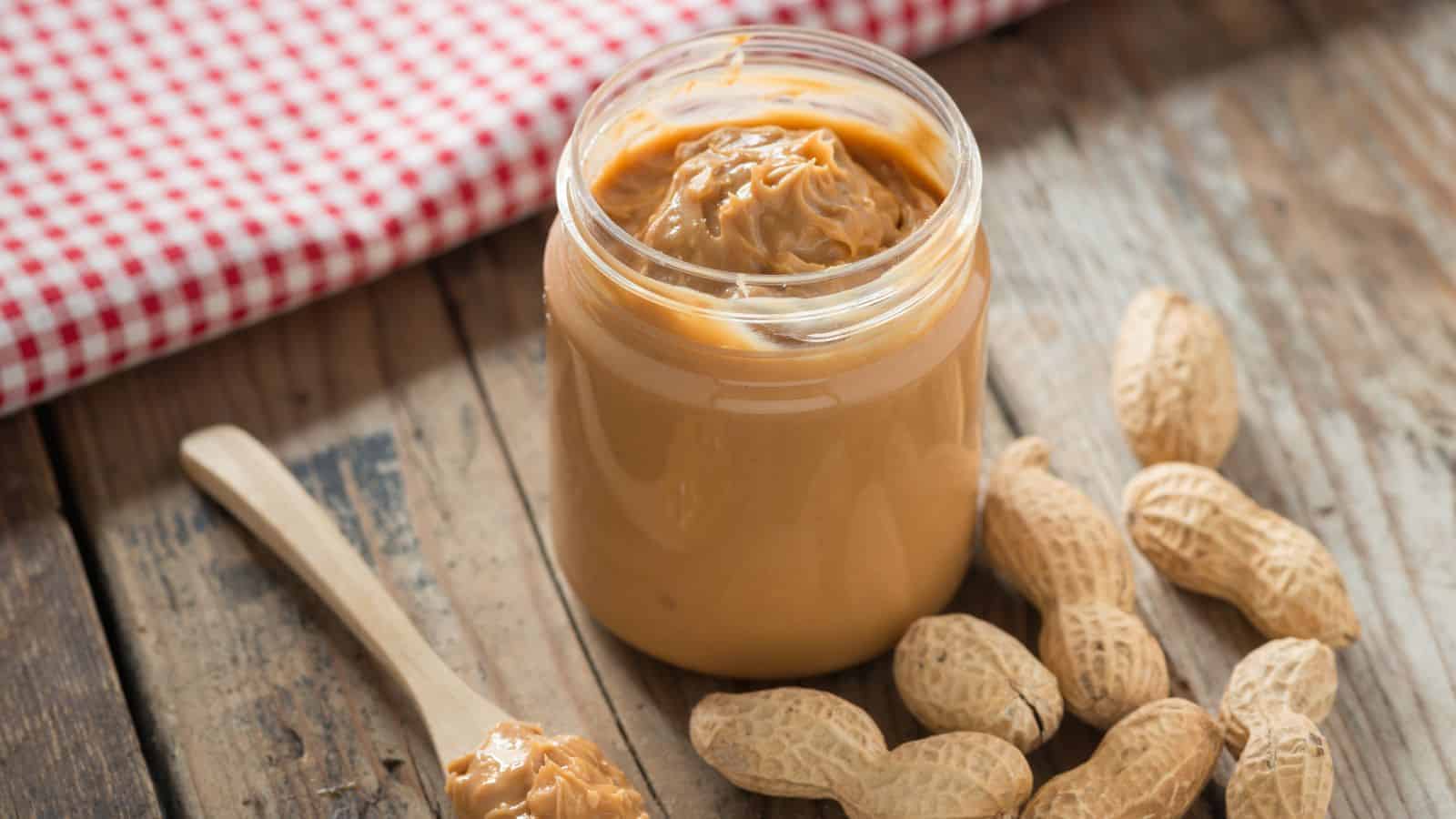
Peanut butter is a known favorite among many different dog breeds, and you’ll be happy to hear that it’s also quite healthy for them in moderation. However, you should always make sure it doesn’t contain xylitol, which the Blue Cross says is very toxic to dogs. It’s also better to go with plain, unsalted options.
Apples
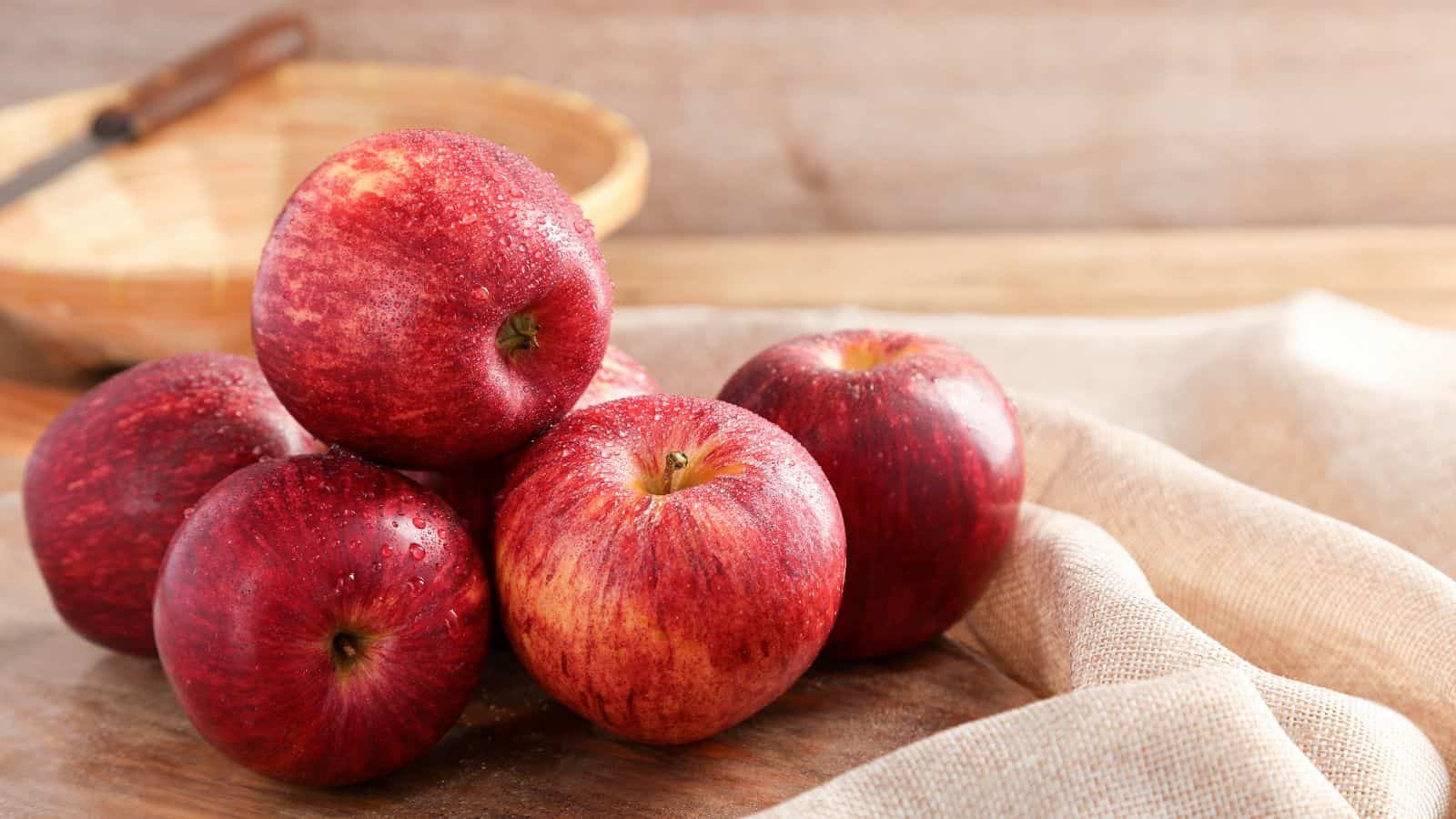
As long as you remove the core and seeds, apples are perfectly safe to be shared with your dog. In fact, they are actually a healthy source of vitamin A and vitamin C and contain fiber that can aid your dog’s digestion. Some people also find that they freshen up their dog’s breath and help clean their teeth.
Carrots
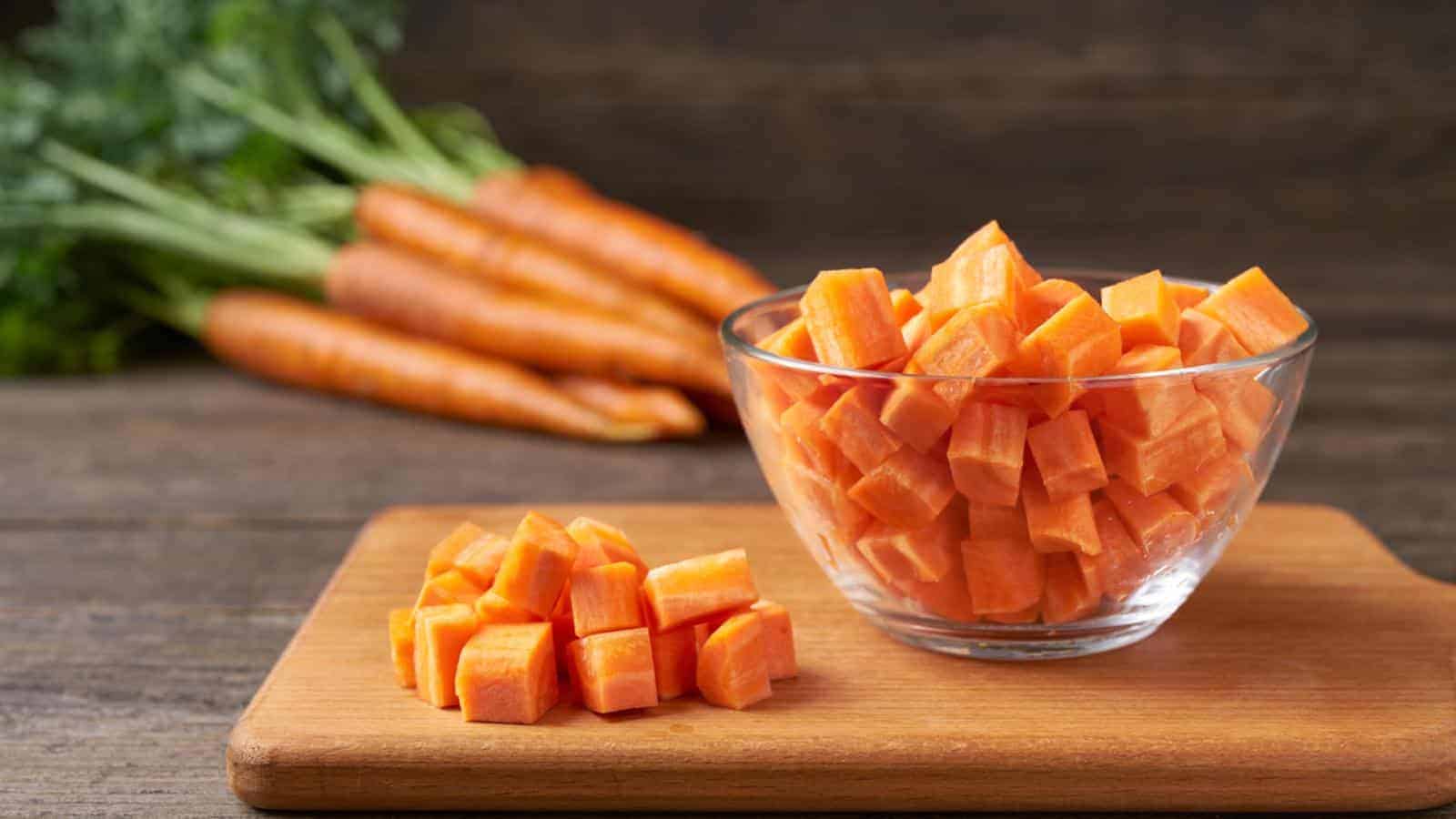
Like apples, carrots are a good source of fiber and vitamin A and are totally safe for dogs to consume. They’re low in calories, satisfyingly crunchy, and can also help remove the build-up of plaque on a dog’s teeth. Raw and cooked carrots are both fine to give your dog, but it’s a good idea to cut them into smaller pieces to avoid the risk of choking.
Blueberries
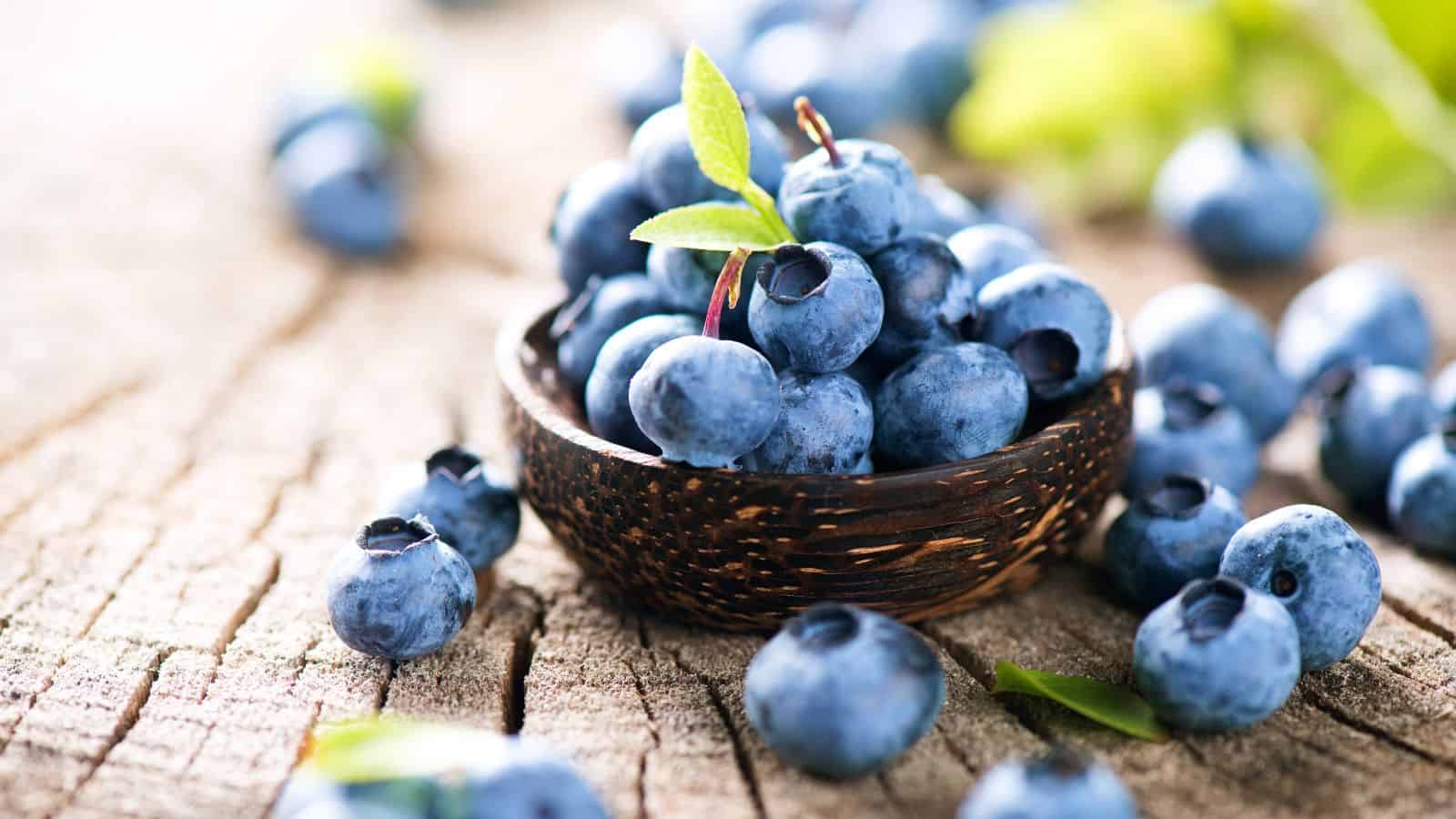
Blueberries are known as a human superfood, but they can also be surprisingly good for your dog’s health. They’re high in fiber, vitamin C, vitamin K, and antioxidants, helping to improve their immune system and overall well-being. Some dogs also enjoy chomping on frozen blueberries.
Pumpkin
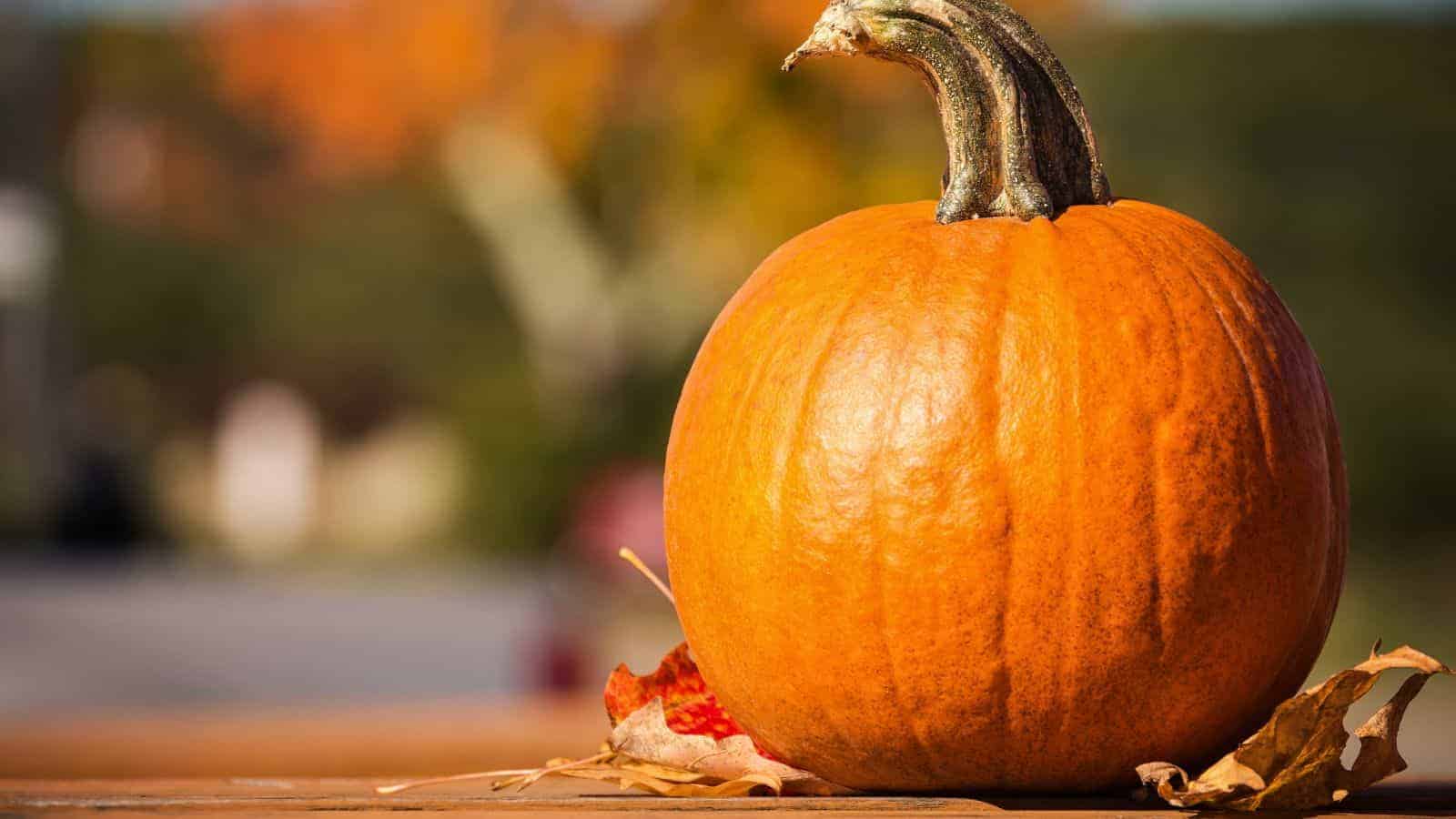
Pumpkin is another fruit that can be great for a dog’s digestive system, containing high amounts of fiber. If your dog struggles with constipation or diarrhea, a small serving of pumpkin may even help to relieve their symptoms. However, it’s important to only give them plain, cooked pumpkin with no additives.
Plain Popcorn
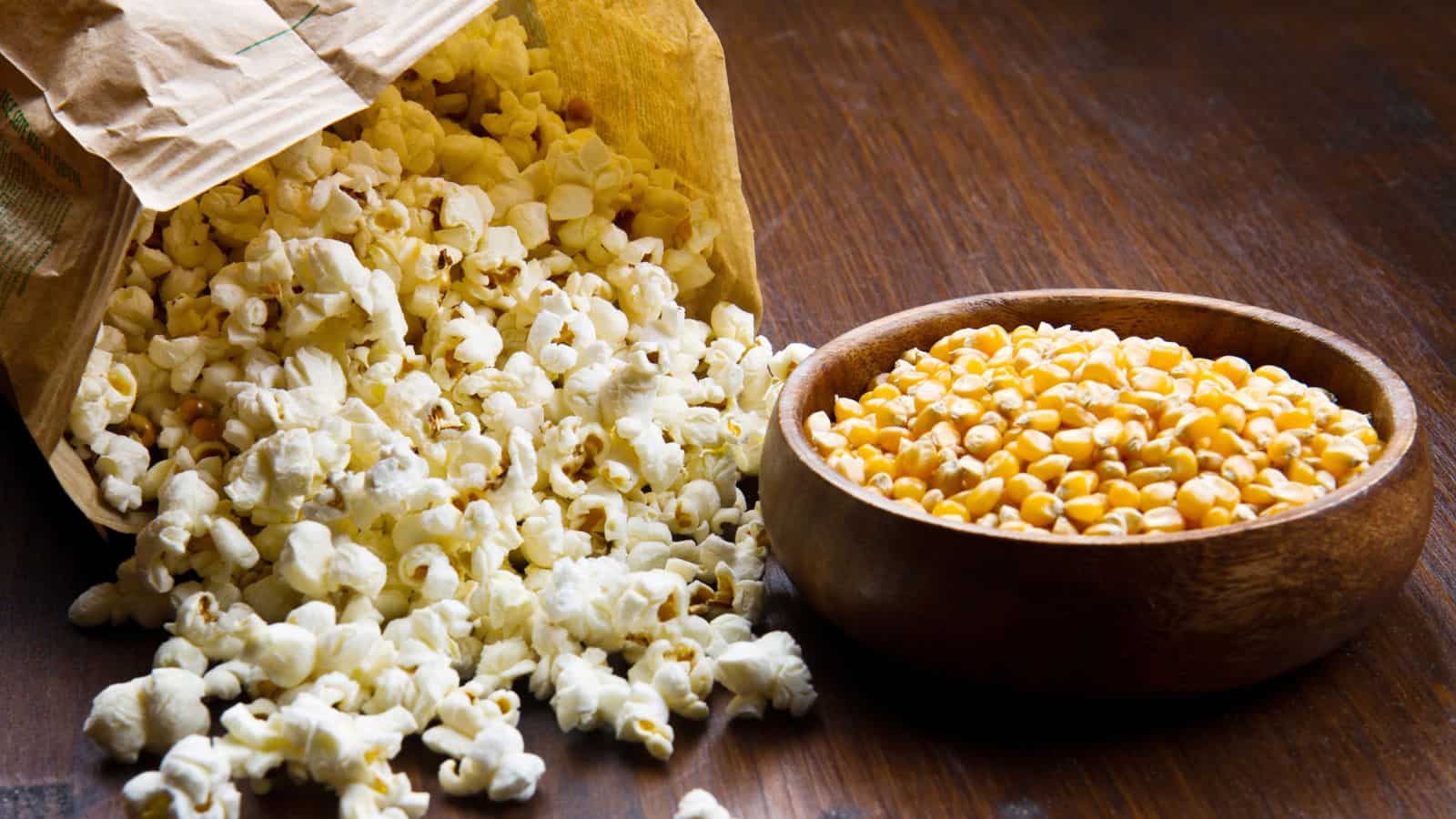
Popcorn may seem like a strange snack to share with your dog, but as long as you get the right kind, it’s actually perfectly safe and enjoyable for them. Just make sure you only give them plain, unseasoned popcorn, as those containing butter, salt, or sugar could be harmful.
Green Beans
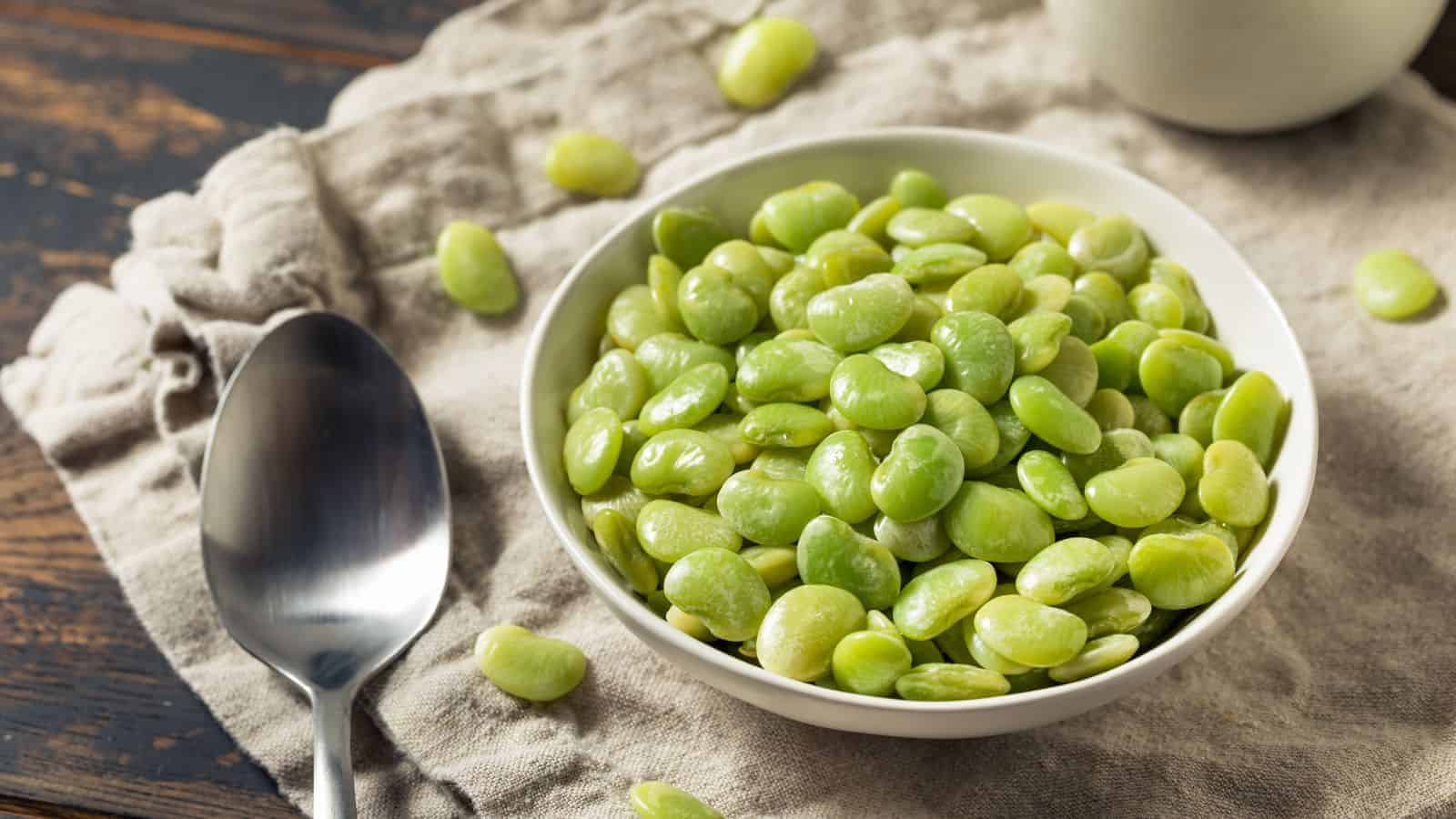
Green beans are low-calorie, nutritionally dense little vegetables with plenty of fiber and vitamins. They make a versatile snack option for your dog, as they’re safe to be eaten raw, boiled, or steamed. Just be sure not to add any seasoning that may be unsafe, such as salt or pepper.
Sweet Potatoes
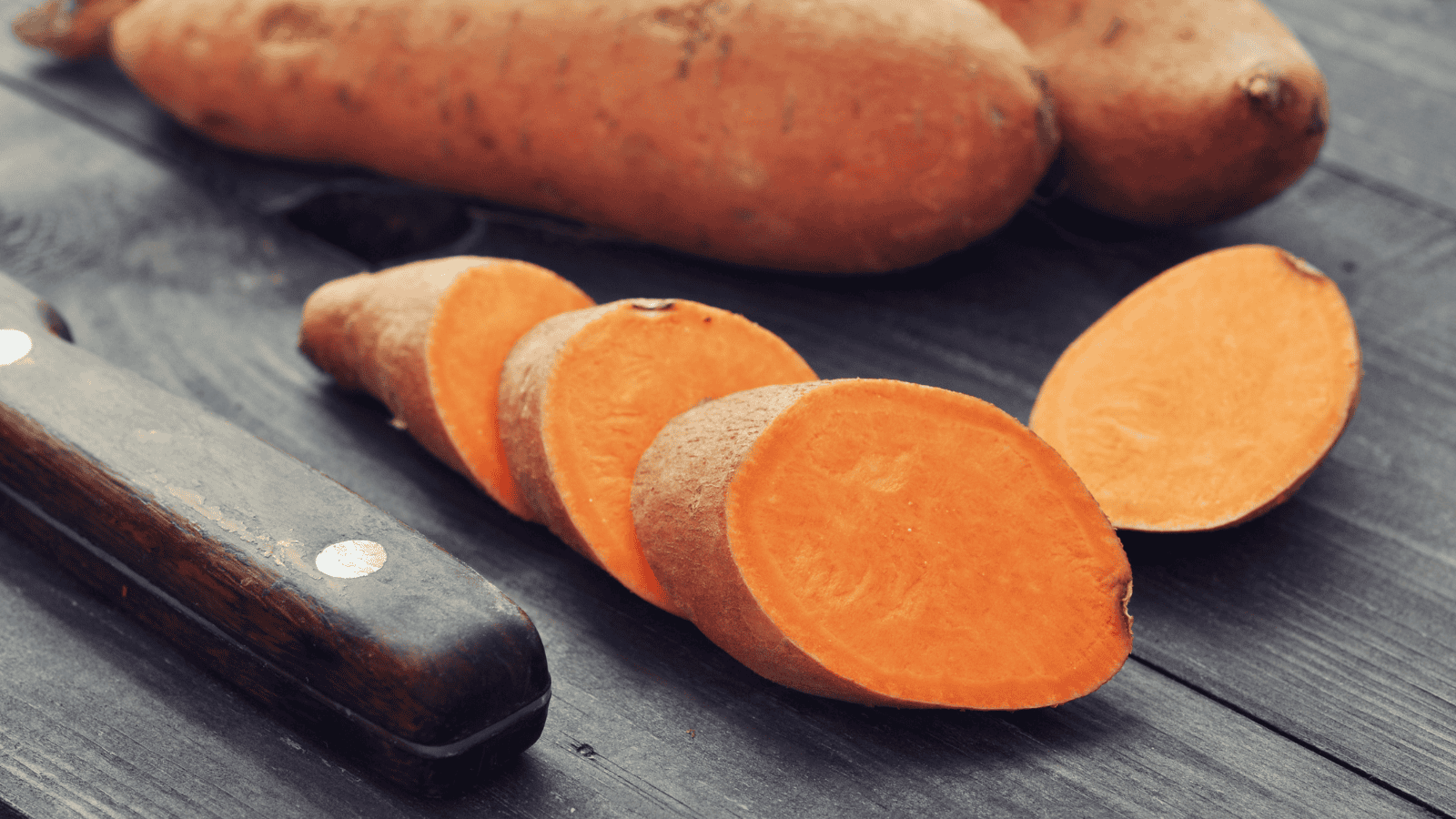
According to the American Kennel Club, sweet potatoes make a healthy snack for dogs, with plenty of fiber, vitamins, and minerals to improve their digestive and overall well-being. All you have to do is make sure they’re cooked and cool enough to eat before you share them with your canine companion.
Eggs
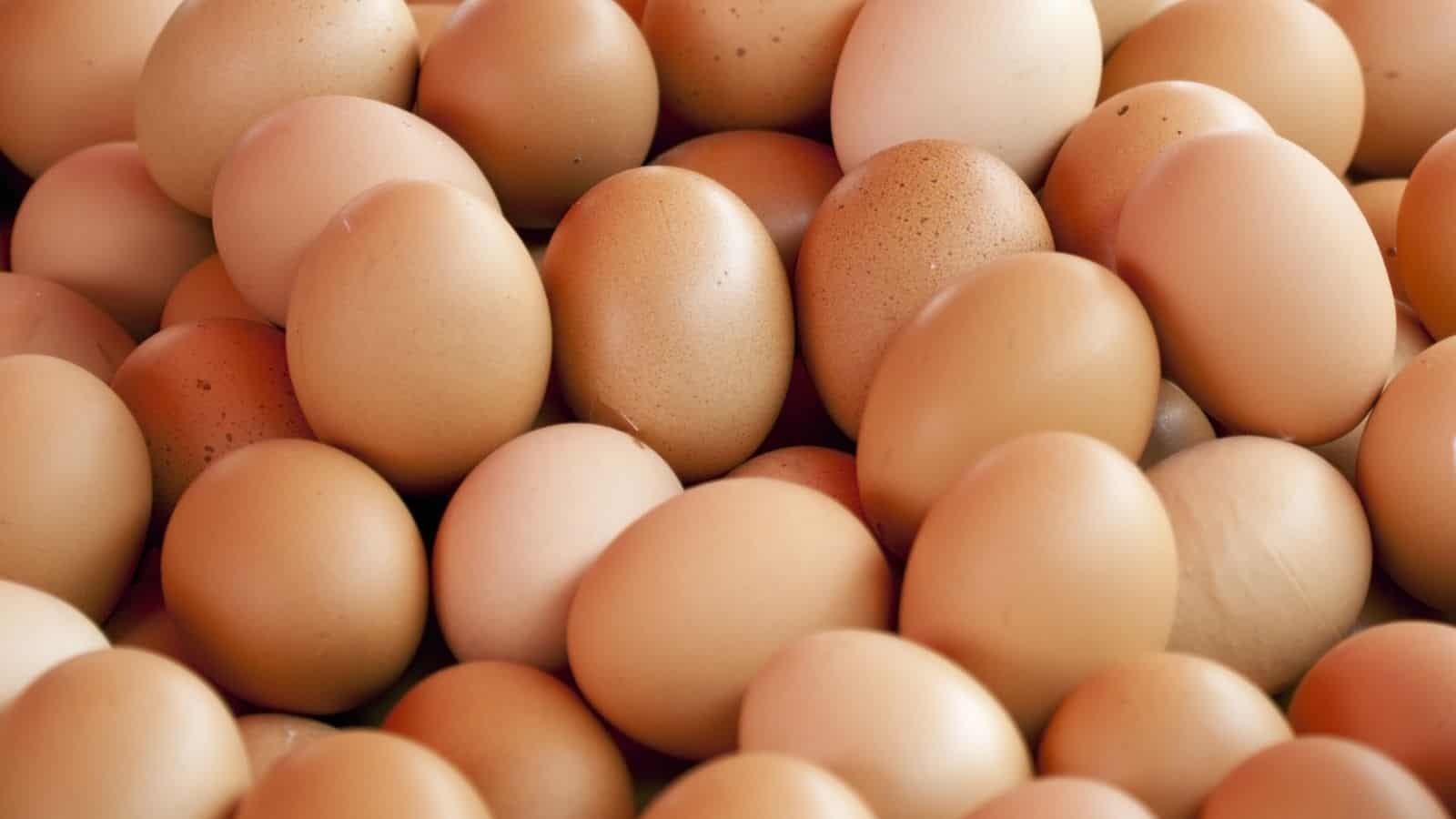
With plenty of protein and other important canine nutrients, eggs make a wonderful snack to share with your dog. The most important thing to remember is that they should only be served cooked and not raw, as this could put them at risk of salmonella.
Yogurt
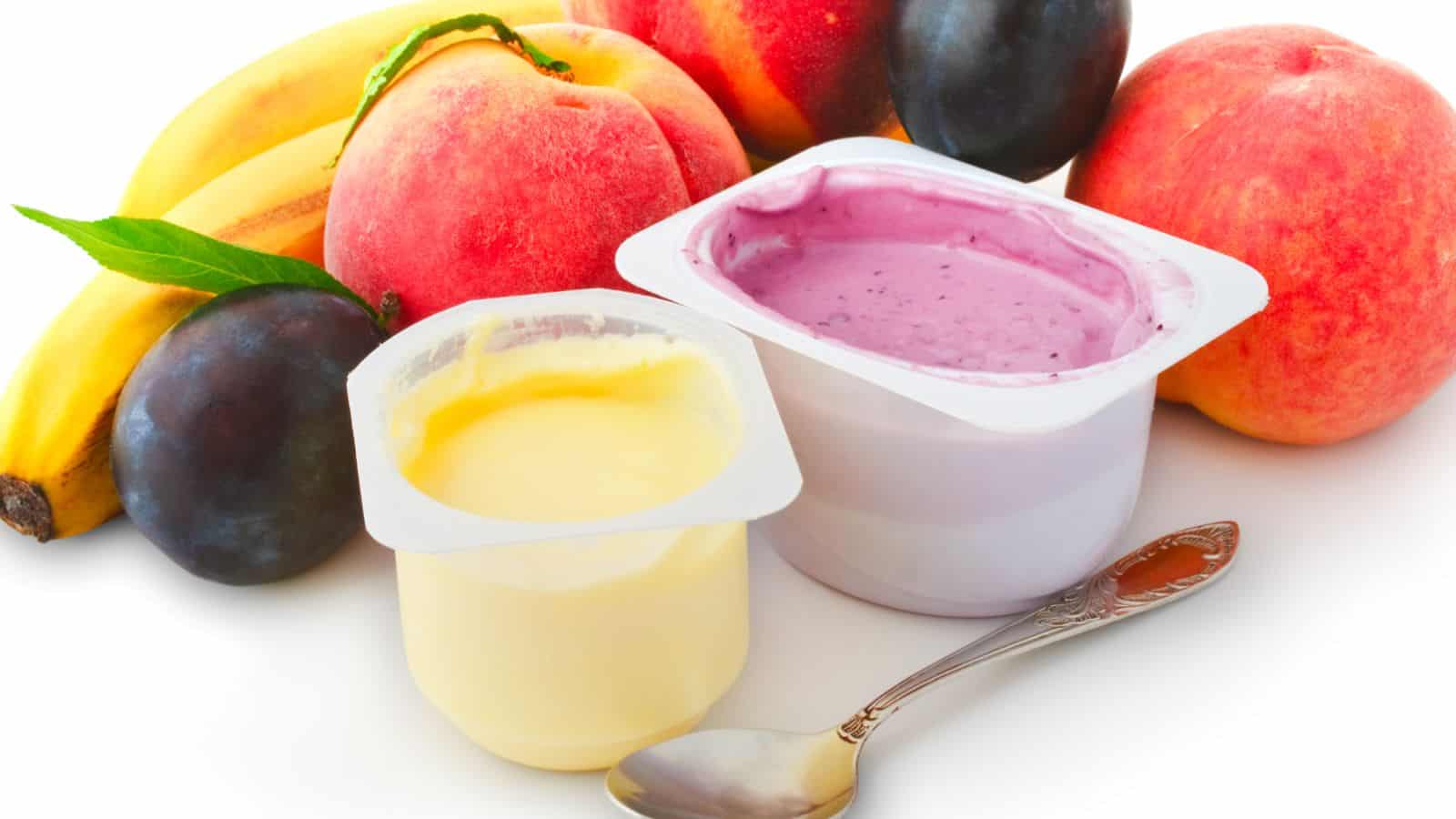
Yogurt is known to be a great option for improving human digestive health, but does it offer the same benefits to dogs? You’ll be glad to hear that the answer is yes. Yogurt is a great source of probiotics, calcium, and protein, all of which can enhance your dog’s well-being. Just make sure that you stick to plain, unsweetened yogurt.
Chicken
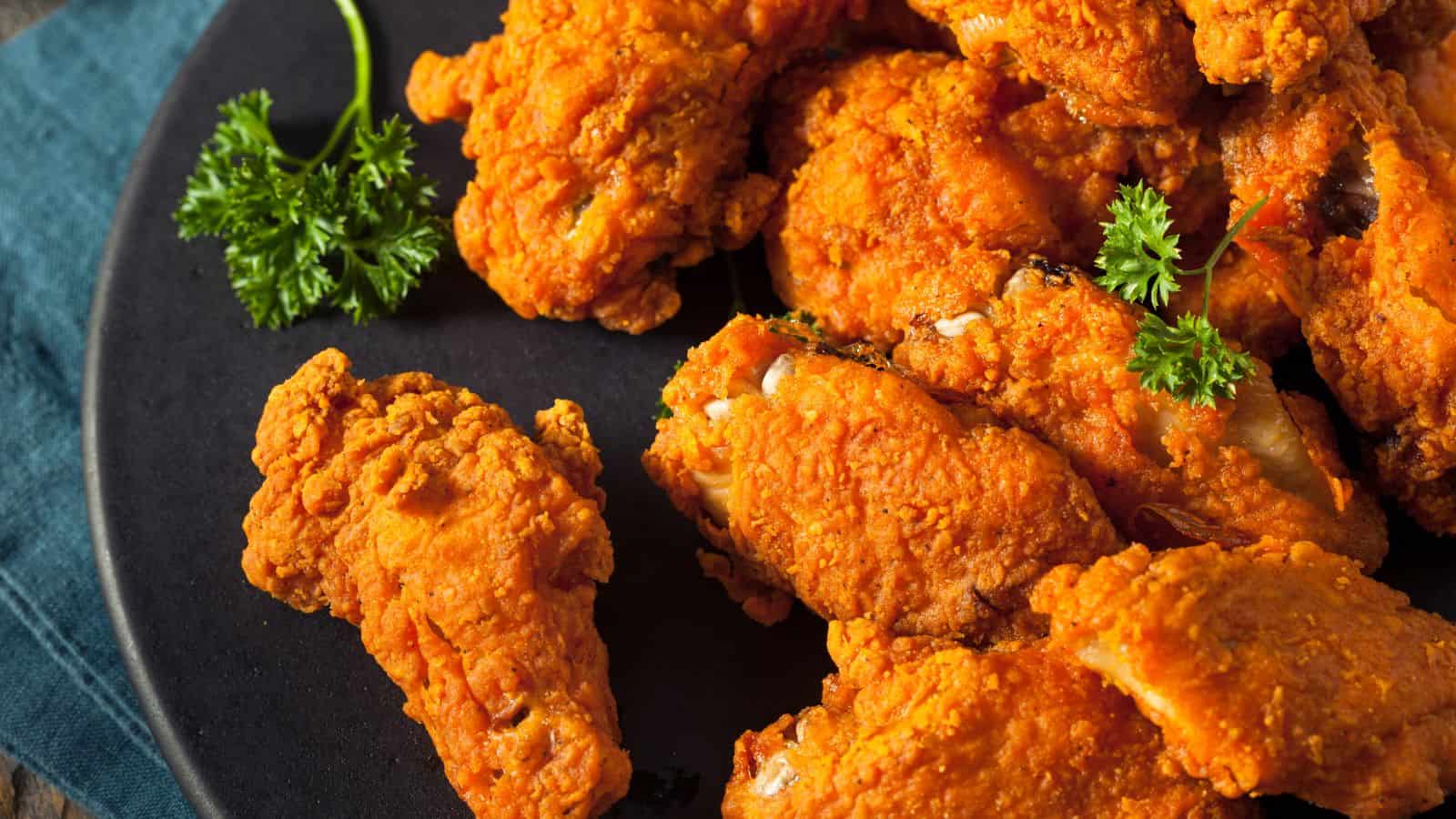
Dogs do best when their diet primarily consists of meat and other animal products, so it should come as no surprise that chicken is a great meal option for them. Ensure that the chicken is plain, boneless, unseasoned, and cooked to avoid any issues with digestion or obstructions.
Bananas
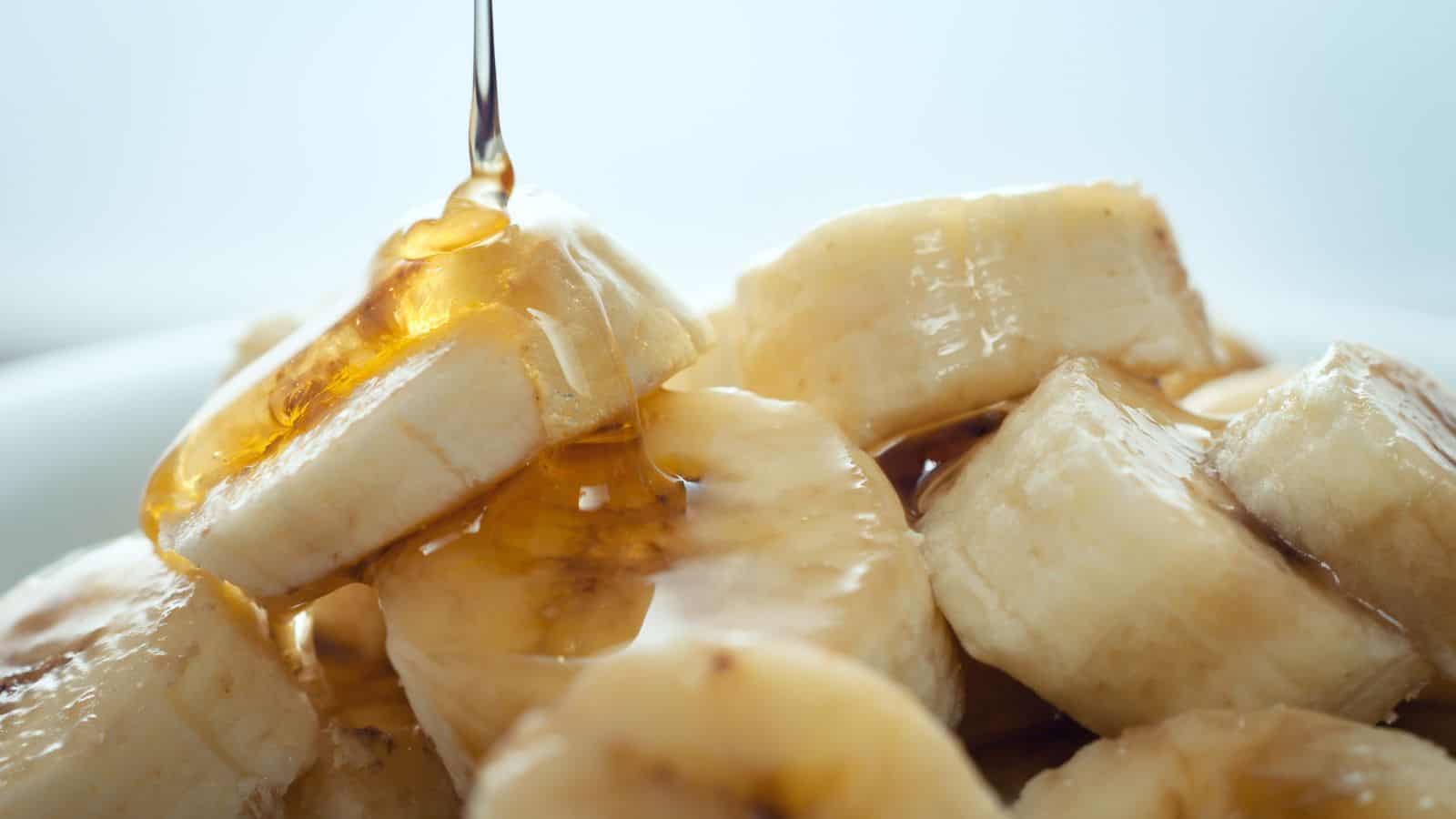
Bananas are one of the best sources of potassium you can get, and they also contain a healthy dose of fiber and various vitamins. In moderation, they’re completely healthy to share with dogs. However, you shouldn’t give them too much on a regular basis, as they’re fairly high in natural sugar.
Salmon
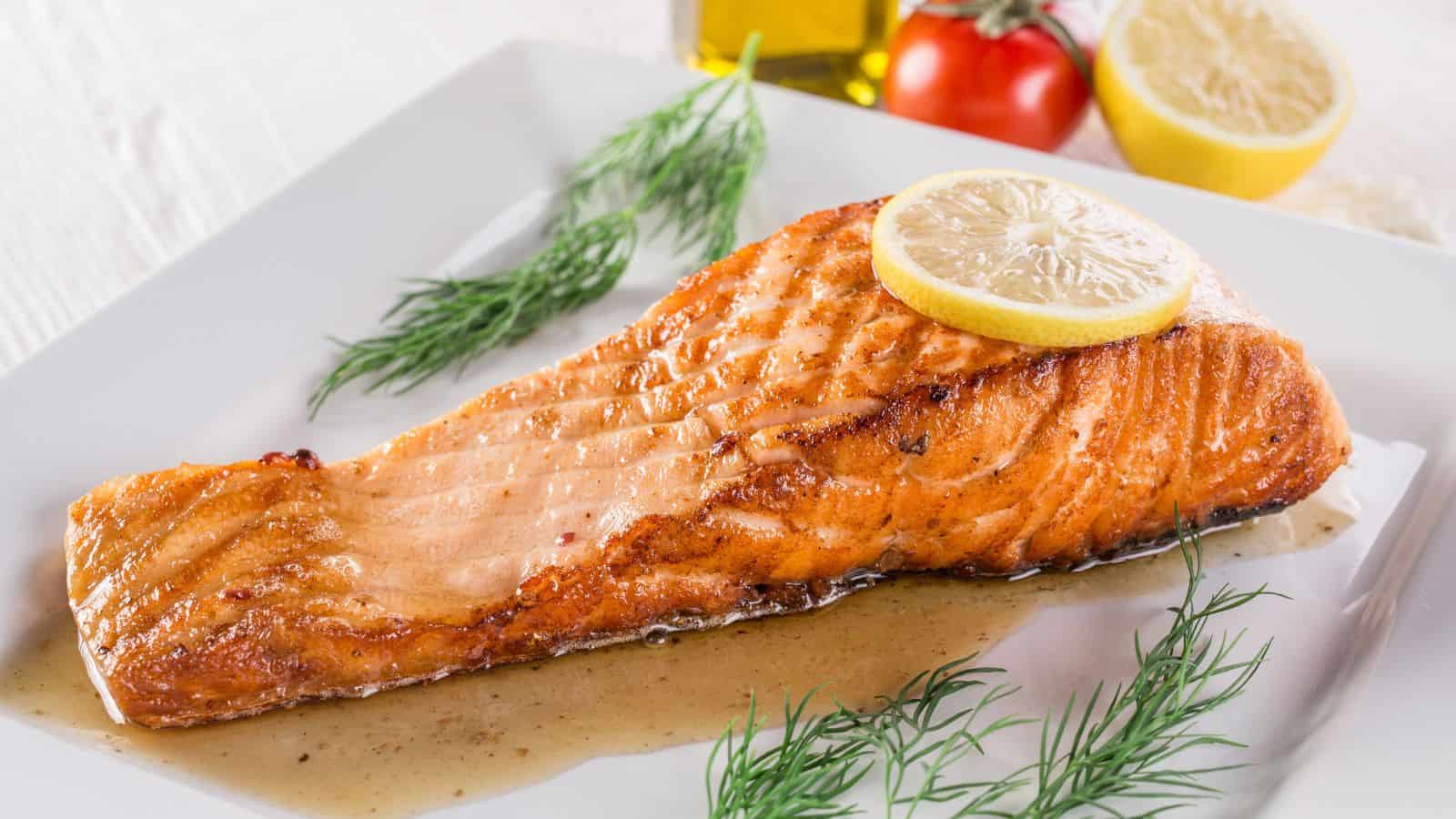
Salmon is a great source of protein and omega-3 fatty acids, which can help keep a dog’s coat healthy and shiny and enhance their immune system. Be sure to cook the salmon first, remove any bones, and only feed it to them occasionally to prevent the risk of mercury poisoning.
Spinach
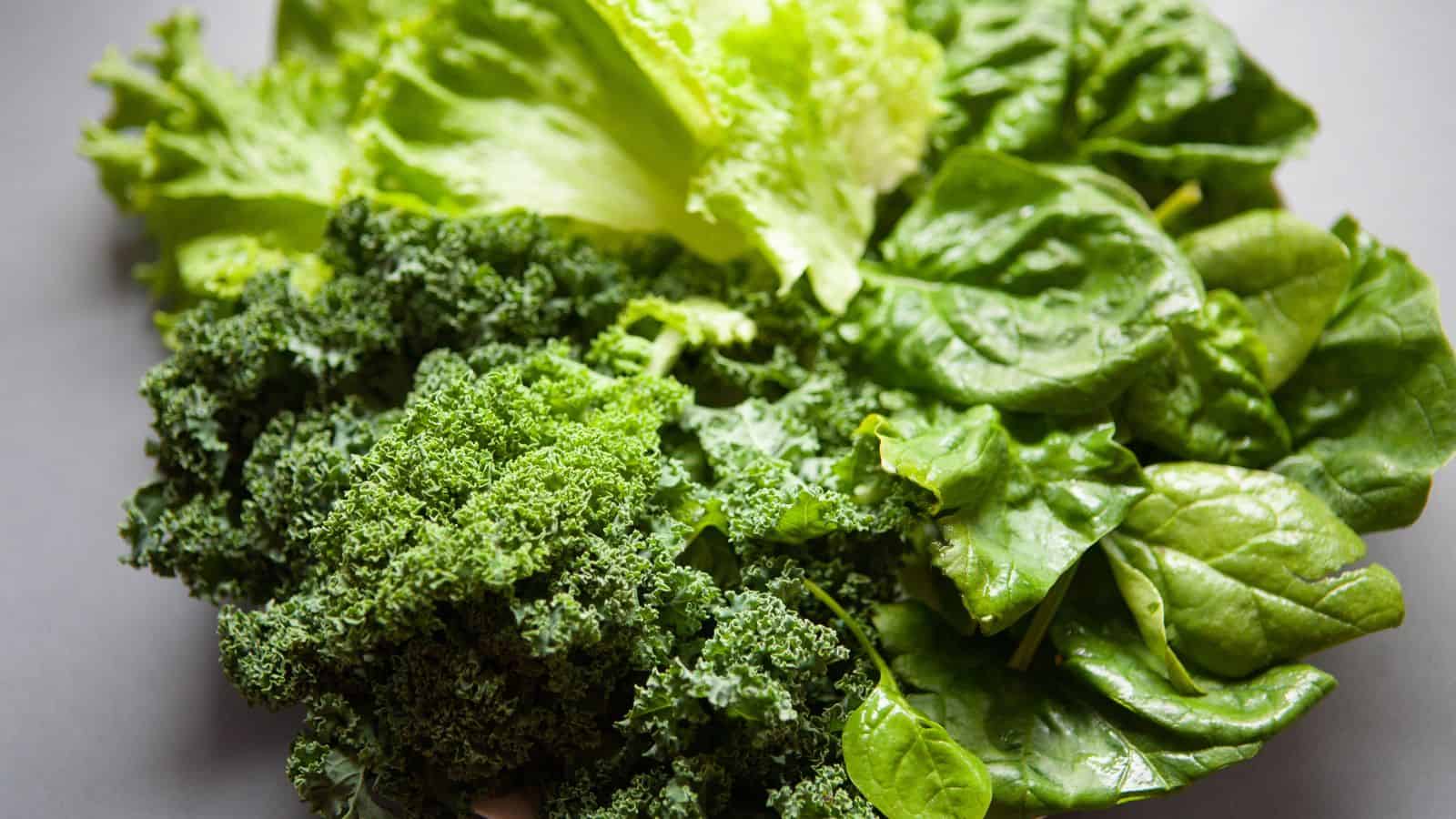
Spinach is full of vitamins, iron, antioxidants, and protein, making it a great addition to your dog’s diet. Not all dogs will be big fans, but you can make it more appealing and easier to digest by cooking it first and mixing it in with their normal food.
Celery
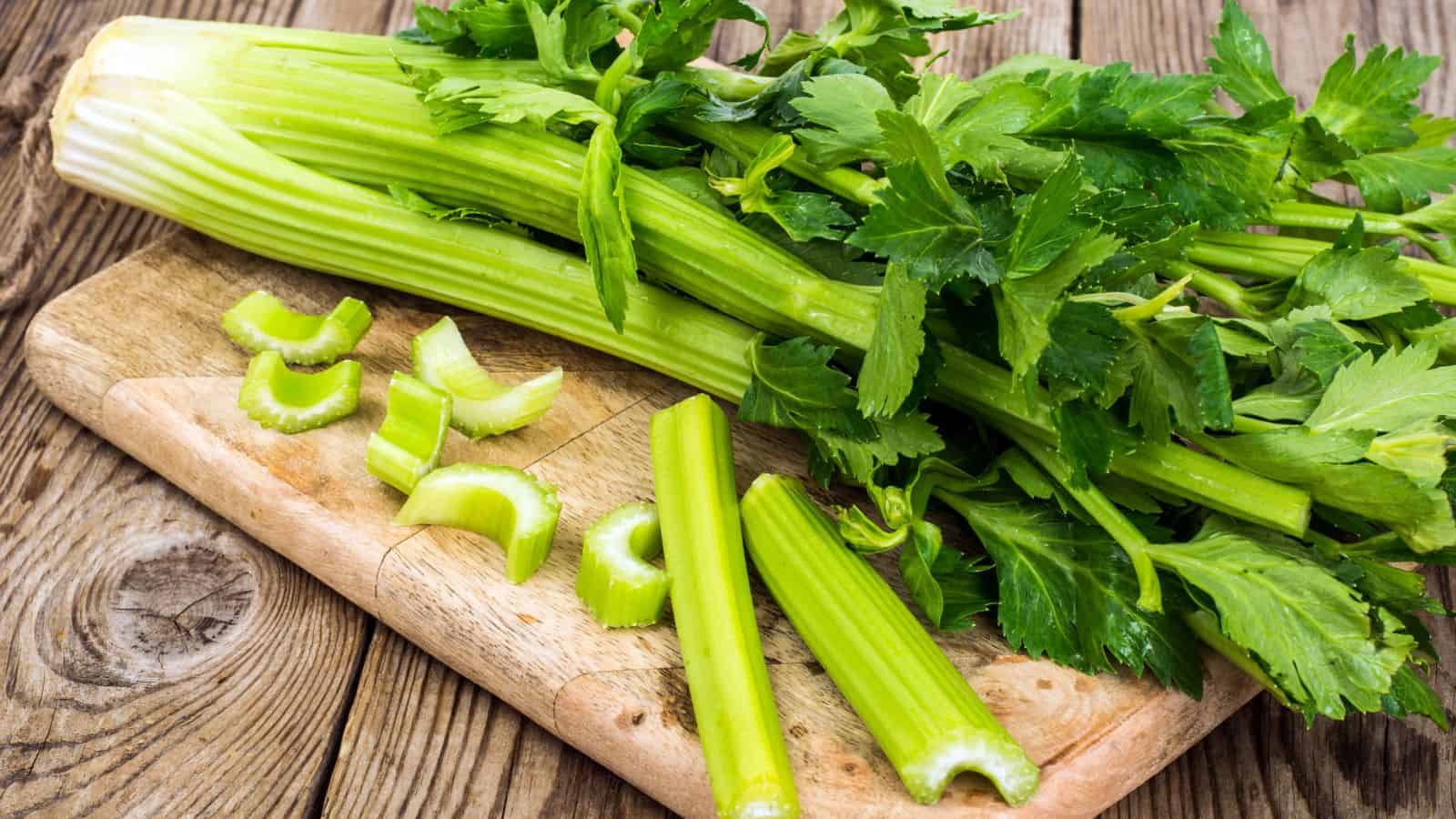
Celery is known for being very low in calories and packed with nutrients such as vitamins A, K, and C. Many dogs enjoy its crunchiness, and it can help to freshen up their breath. All you need to do is make sure it’s served plain without any seasoning and ideally cut it into smaller pieces to avoid the risk of choking.
Strawberries
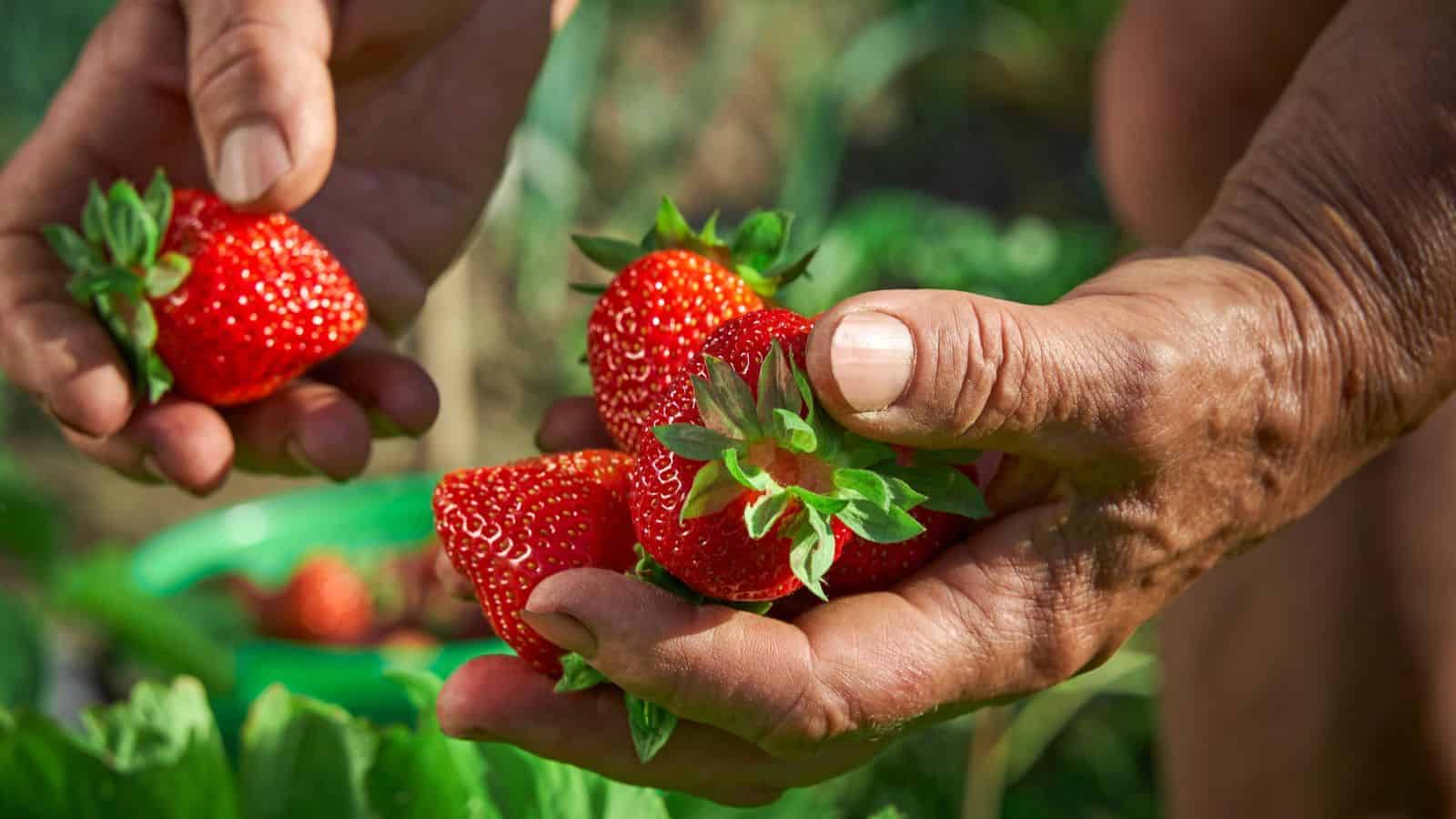
Many people love strawberries for their sweet taste, vibrant color, and health benefits. A lot of dogs enjoy them for these same reasons, providing them with a healthy dose of antioxidants and vitamins. Simply wash them first, cut them into smaller pieces, and give them a small serving to avoid stomach upset.
Watermelon
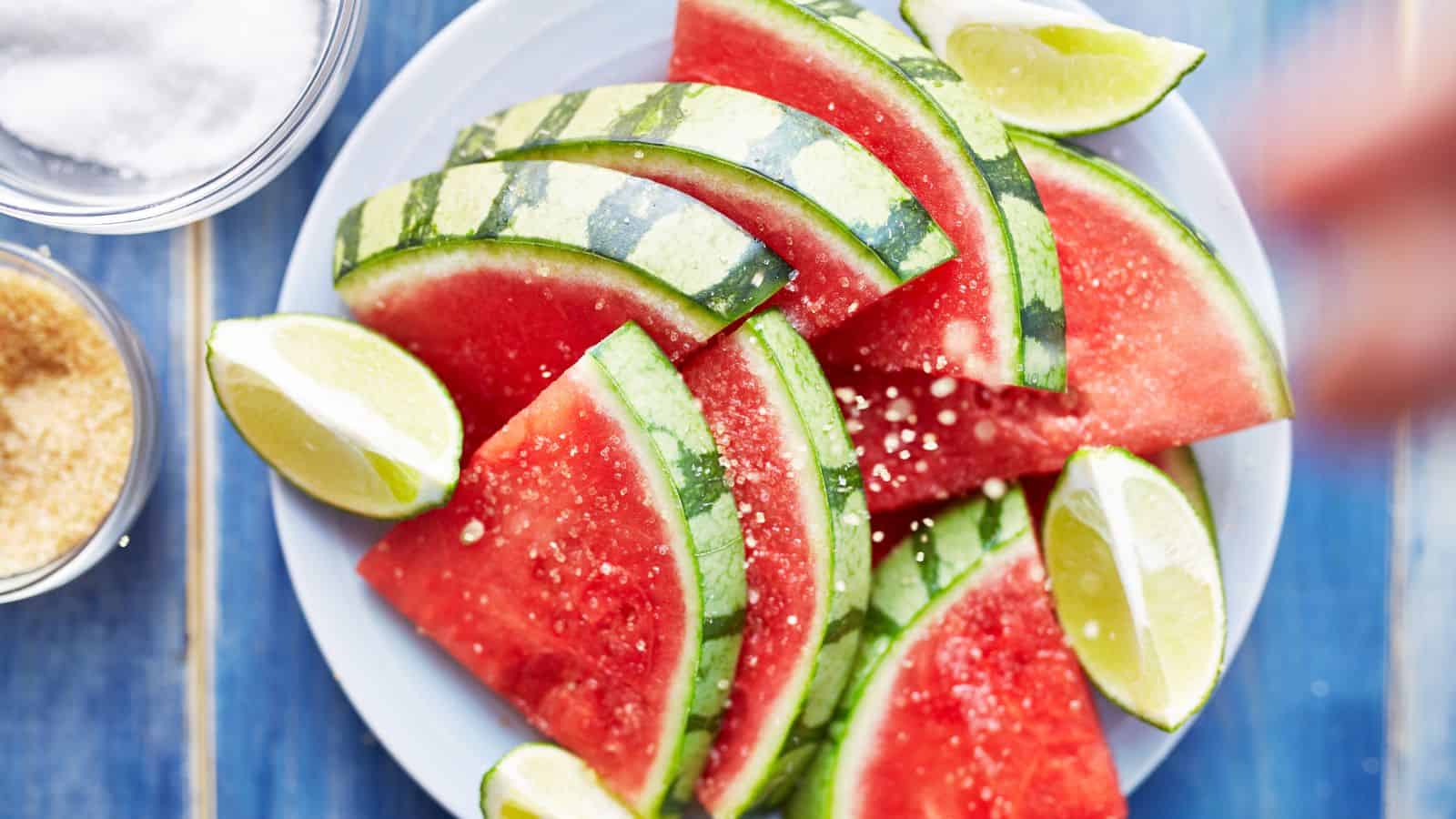
Watermelon is a wonderful summer snack for both humans and dogs, helping to keep them hydrated and healthy. However, the American Kennel Club warns that you should first remove all the seeds and rind to avoid choking and stomach issues.
Oranges
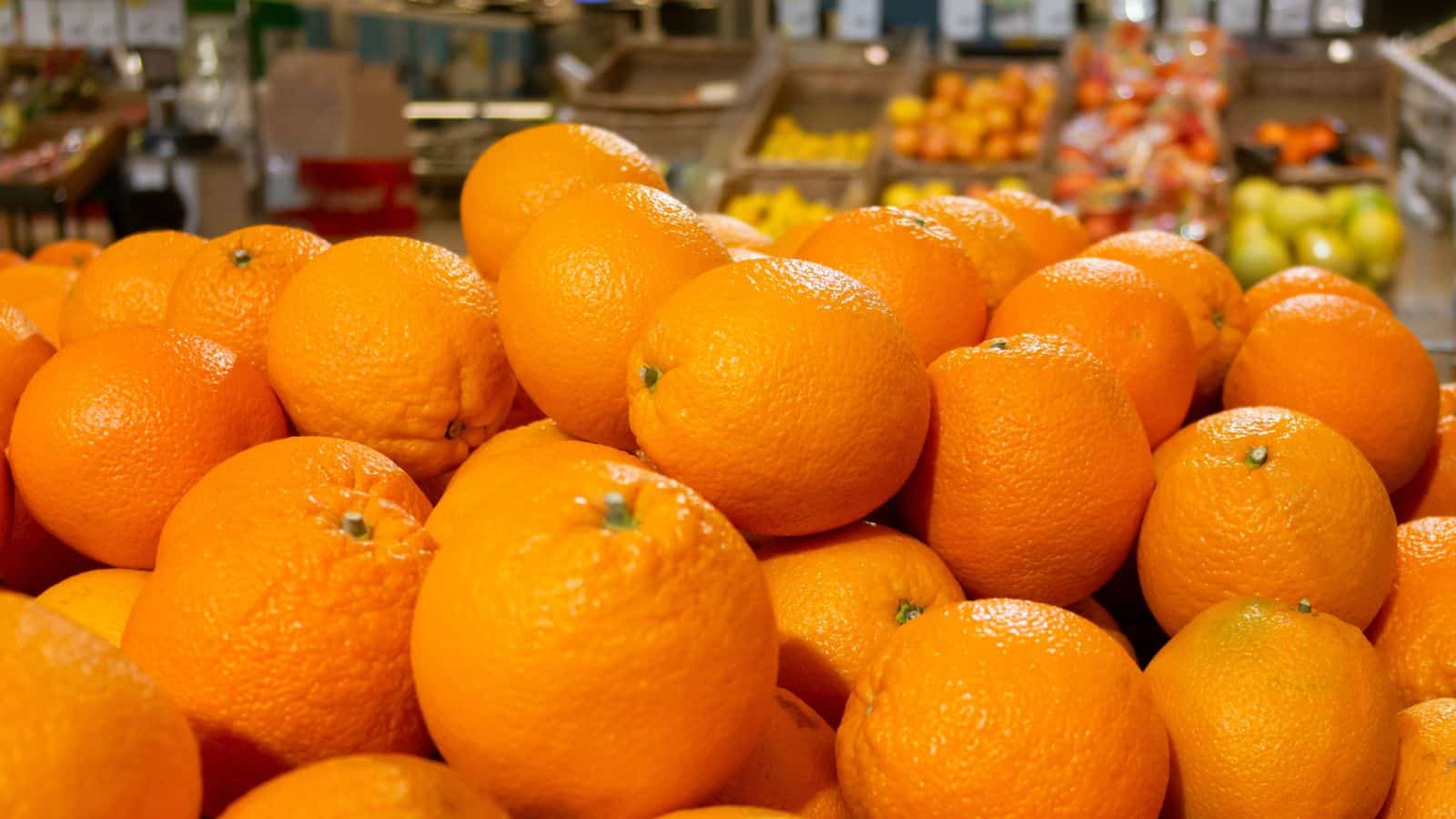
Oranges are a healthy source of vitamin C for dogs and can help enhance their immune system. However, you should only give them the flesh and make sure to remove the peel, pith, and seeds first. You should also give them a small amount, as too much can upset their stomach.
Peas
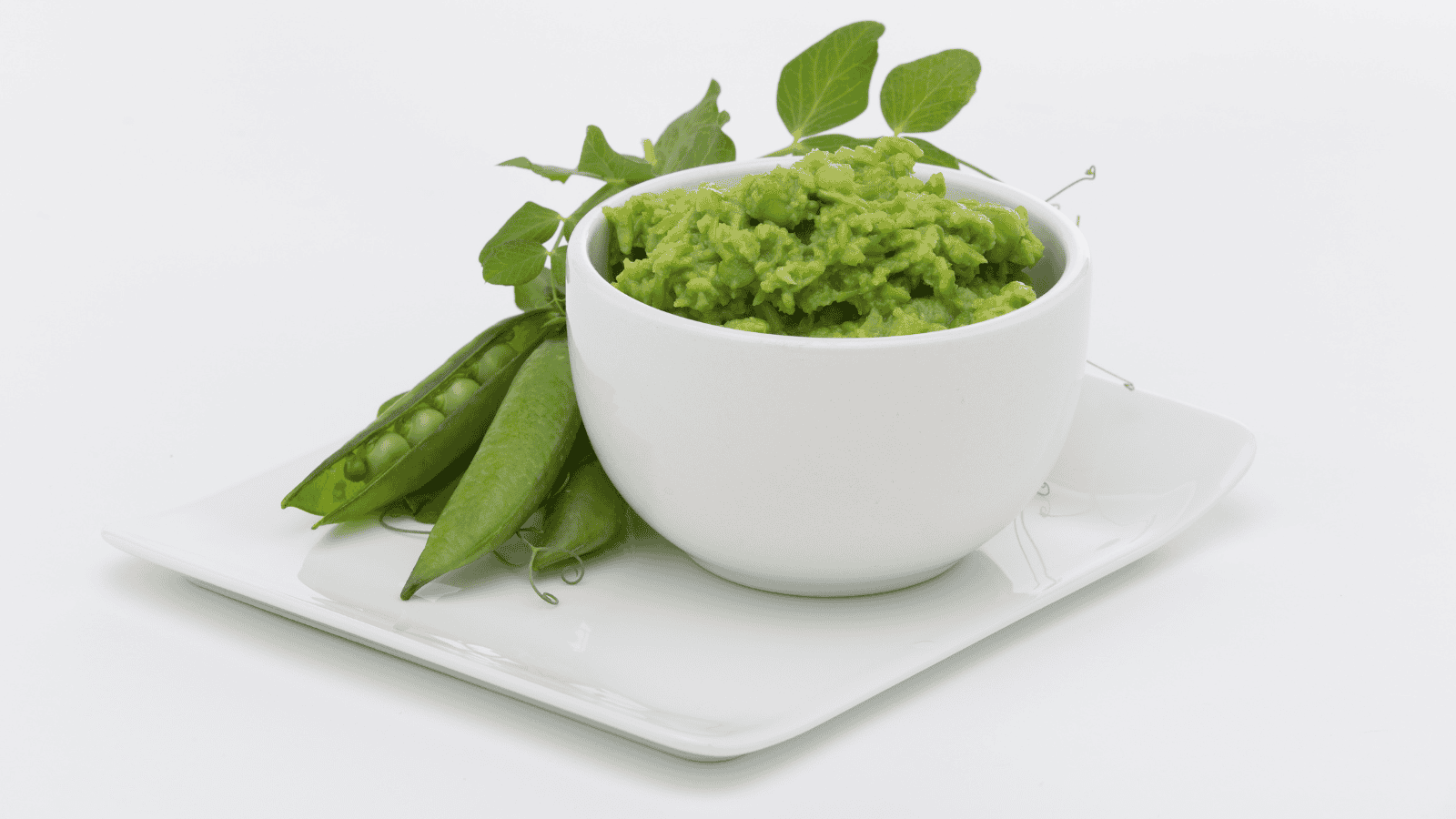
Peas contain plenty of vitamins and minerals, making them a healthy addition to your canine companion’s diet. They’re also very versatile and easy to add to your dog’s regular food, as they’re small and can be served fresh, steamed, or frozen. Just make sure to serve in moderation to avoid digestion issues.
Coconut
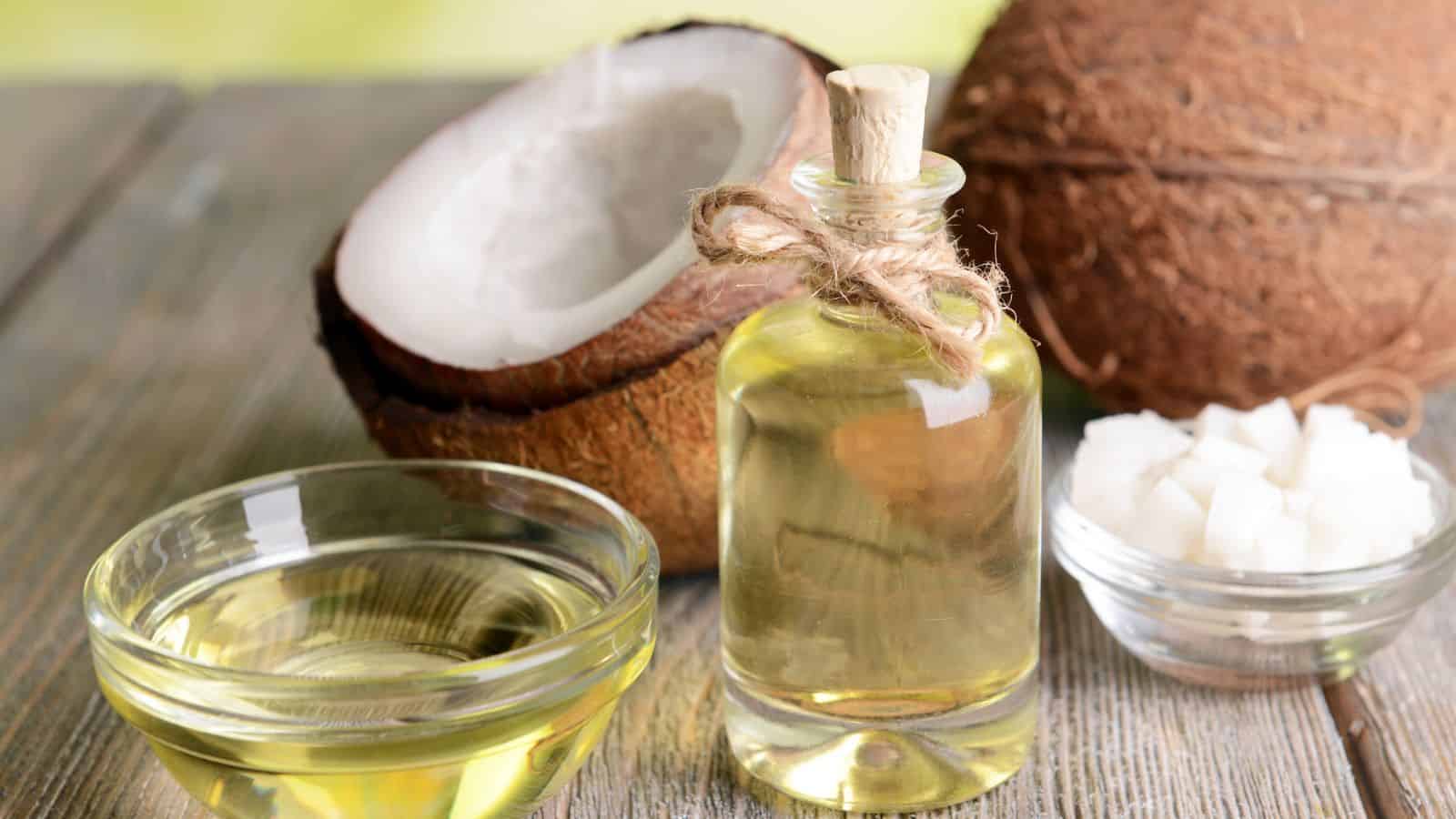
Both the flesh and oil of a coconut are safe for dogs in small quantities, helping to improve their skin and coat condition. However, Purina warns that you shouldn’t give them too much, as they’re fairly high in calories and fat, which can lead to unwanted weight gain and digestive issues.
Up Next: 18 Reasons Why Men Get Grumpier As They Age

You might read this and be able to relate, or you may feel you’ve become grumpier the older you’ve gotten. Or maybe you know of a male friend or relative who has. Here are 18 reasons why men get grumpier as they age.
18 Reasons Why Men Get Grumpier As They Age
17 Products Millennials Refuse to Buy and It’s Affecting the Economy

Millennials have been the center of so much media attention due to their spending habits. Their unique ways of spending have built up and crushed many traditional industries. In this article, we look at 17 things millennials stopped buying and how that has impacted society.
17 Products Millennials Refuse to Buy and It’s Affecting the Economy
Where Even Truck Drivers Won’t Stop

Truck drivers tend to be hardy souls—well-seasoned travelers who aren’t often afraid to rest up or refuel in risky locations. However, there are certain U.S. locations that even the most road-weary trucker refuses to stop at for fear of criminal activity or natural dangers. Here are 17 such locations that even experienced truck drivers approach with trepidation (or not at all).
